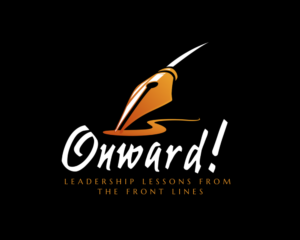Stuff happens. Sometimes, despite the hard work and best intentions of everyone involved, things go wrong. Murphy (of Murphy’s Law fame) finds a way and we come up short. And if we’re trying to do hard stuff, we’re going to come up short more often. We should do it anyway.
I was reminded of that this week as we found both success and setback this past week. Thanks to the hard work of many over the past several months, the early integration with our newest teammates got off to the best start I have seen. The leadership across both businesses are committed and my visits felt like seeing old teammates rather than welcoming new employees. On the other hand, we had to delay a major project whose goal it was to launch before spring, dealing a tough blow to our early process improvement efforts.
In trying to sort it all out this past weekend, I remembered, The Hard Thing about Hard Things, by Ben Horowitz. The book explores the harsh reality that building a business is hard. The path is not always clear and the outcome is by no means certain. Knowing others struggle too is comforting.
At GreenPoint, our big, hairy, audacious goal is to be the premier provider of agronomy in the Southern US. We’re pulling three — now four — successful companies together and building a new type of farmer-owned company, based on a culture of service to our growers and belonging among our teammates. Getting the business right is one challenge but getting the culture right is a whole different level.
Everyone’s goals, of course, are different. But if you want to be great, you’re going to have to tackle hard problems.
So how do you fix the Hard Stuff?
- Be the “Somebody”. We all run into challenges every day that are not directly our responsibility. The issues most often exist between teams, between areas of responsibility, between companies or between systems. We often say, “Someone should fix that” or “Someone should do something about it.” To be great, we have to have people who are willing to be the Somebody. We need people with the courage to go outside their lane, to reach beyond their teams and get unfamiliar people to work together.
- Go together…together. As the old African proverb says, “If you want to go fast, go alone. If you want to go far, go together.” For an organization of any scale to achieve greatness, it must be more than a collection of good teams. It must be good at solving issues between and among teams. As I mentioned above, the hard stuff is between; solving them requires bringing people together who don’t necessarily know or trust one another. So you have to build trust not just within teams but among teams. That starts by reaching out, again and again, over-communicating and risking rejection. You have to do it anyway.
- Acknowledge that Failures are Part of the Process. Failure is not fatal but the price of admission. As author Brene’ Brown says in her book, Dare to Lead, “If you’re going to dare greatly, you’re going to get your ass kicked at some point. If you choose courage, you will absolutely know failure, disappointment, setback, even heartbreak. That’s why it’s called courage. That’s why it’s so rare.”
So I’m excited for our good start and bummed our improvement project didn’t go off as we’d hoped. It means we’re human and we’ve got work to do. But I take tremendous heart that we have folks with the courage to step up, embrace the suck, reach beyond their teams, and to try to tackle a complex problem without guarantee of success. With people like that and attitudes like that, failures are simply setbacks, bumps along the road to achieving our big, hairy audacious goal.
Onward!
Jeff
Jeff Blair is the President and CEO of GreenPoint Ag, a larger farmer-owned agronomy company in the southern U.S. Jeff is passionate about leadership and wants to share some of the lessons he’s learned along his leadership journey.





